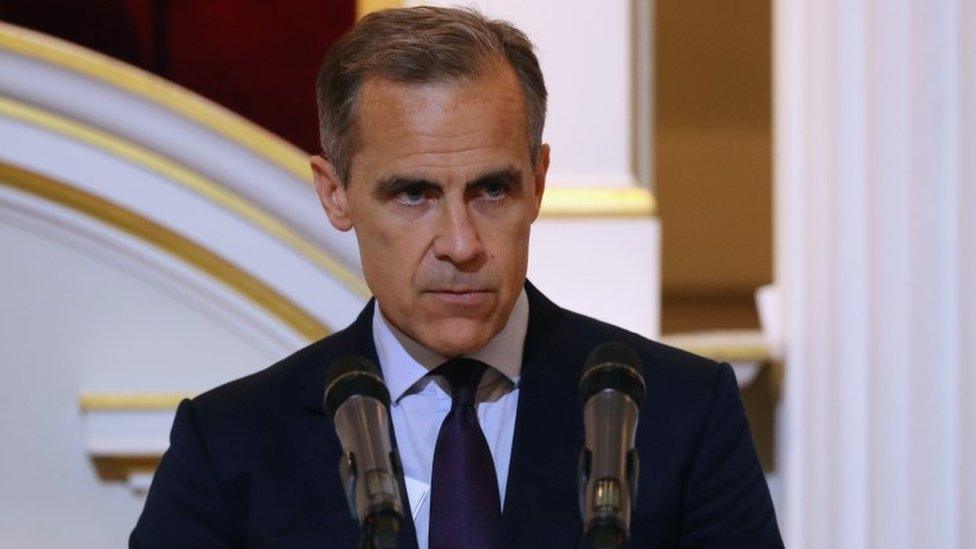Osborne – juggling daggers
- Published
- comments
George Osborne: "We are equipped for whatever happens"
From Project Blimey This Is Scary, welcome to Project Reassure.
George Osborne made a deliberate attempt this morning to soothe twitchy markets - the fundamentals, the chancellor insisted, have not changed.
The UK economy is still growing, Mr Osborne said; the banks are better financed than they were ahead of the economic crisis of 2008, Mr Osborne said; the deficit is down from 11% of national income to 3%; employment is at record levels and the Bank of England stands ready to support Britain's vital financial services sector.
With David Cameron on his way out, a new prime minister yet to be chosen, a general election possible if not probable, the official opposition suffering its own crisis; the markets - sometimes accused of not being able to walk and chew gum at the same time - are being asked to ride a unicycle whilst juggling daggers.
Markets like certainty. And whether you support or decry Britain leaving the European Union what cannot be denied is that the "uncertainty index" is travelling upwards.
Into this, step Mr Osborne. Along with Mark Carney, the governor of the Bank of England, he has been tasked with being the lead member of the continuity club.

Bank of England governor Mark Carney is part of 'project reassure'
And that will mean him juggling his own daggers. Yes, the deficit is down, but the UK's debts are still rising and growth is slowing. If there is a recession ahead, the public finances will be further damaged.
It is an uncomfortable position for any chancellor to be in.
Mr Osborne has abandoned plans - if he ever really had them - for an immediate "emergency budget" which he claimed would be needed after a vote to leave the EU.
His position now is that a budget can wait until a new Prime Minister is chosen and a new analysis of Britain's economic position is completed by the Office for Budget Responsibility, the national economic watchdog.
Heading south
The problem with the "steady as she goes" mantra is that markets do not wait for politicians.
As with the Exchange Rate Mechanism crisis of 1992 and the financial crisis of 2008, pressure on currencies and on stock markets happens second by second, a clock not set by the stately desires of Parliament.
Sterling is sliding downhill this morning. Banking stocks alongside property and leisure stocks are all heading south, some at a precipitate rate.
These moves were always likely to be the outcome if Britain voted to leave the EU. And there is not much "reassuring words" from the chancellor can do about that.
As far as the markets are concerned, nothing of substance has changed.
Of course, it is not all one-way traffic.
Some stock prices are likely to improve. Companies that earn revenues in dollars - such as pharmaceuticals - are doing better.
And major exporters will also be helped as sterling weakens.
As Gerard Lyons, the former economic adviser to Boris Johnson, said at the weekend, some believe short-term turbulence will soon be replaced by a new dynamism.
We are certainly not there yet.
And Mr Osborne and Mr Carney are going to have their work cut out convincing markets that Britain will be arriving at those new sunny uplands any time soon.